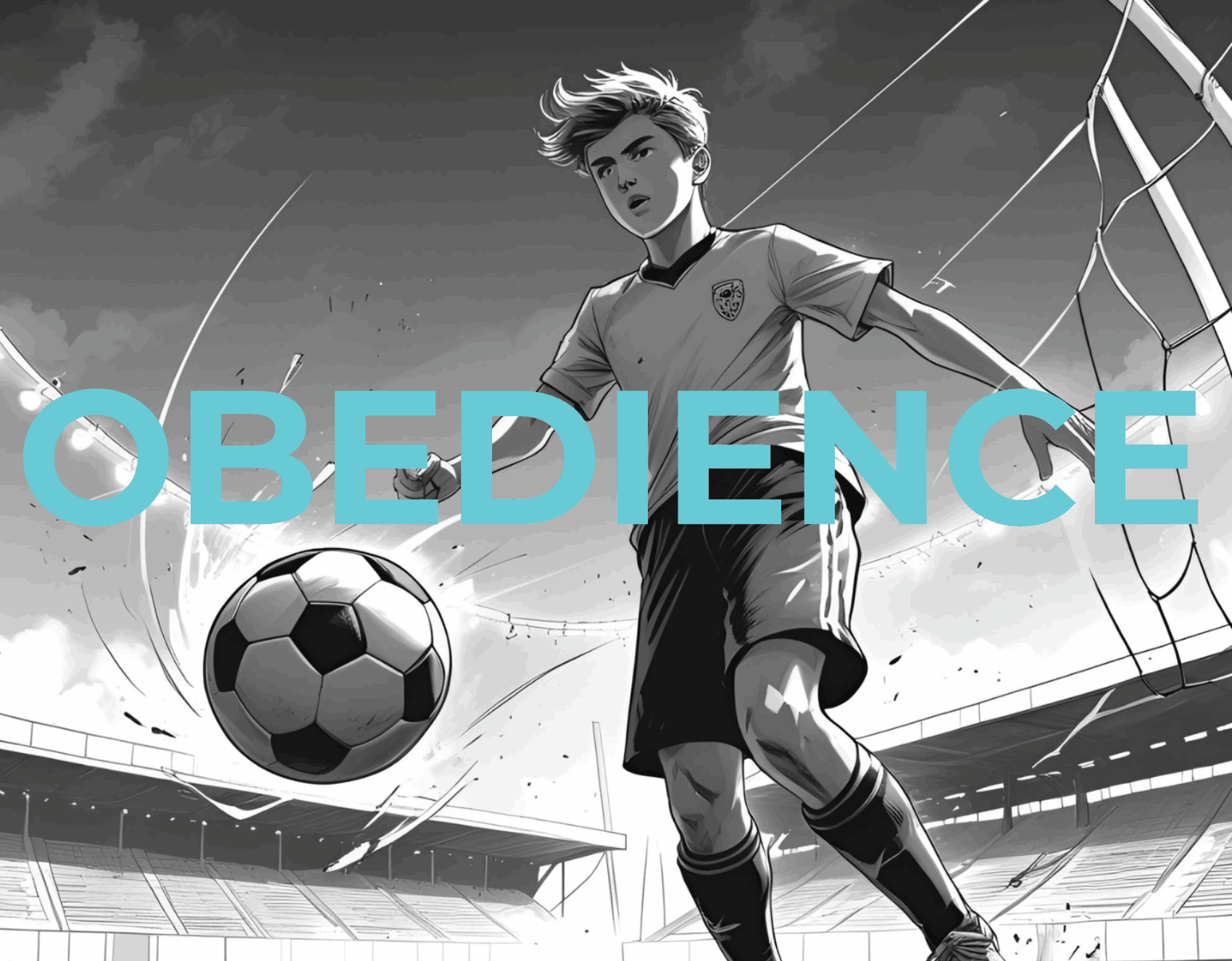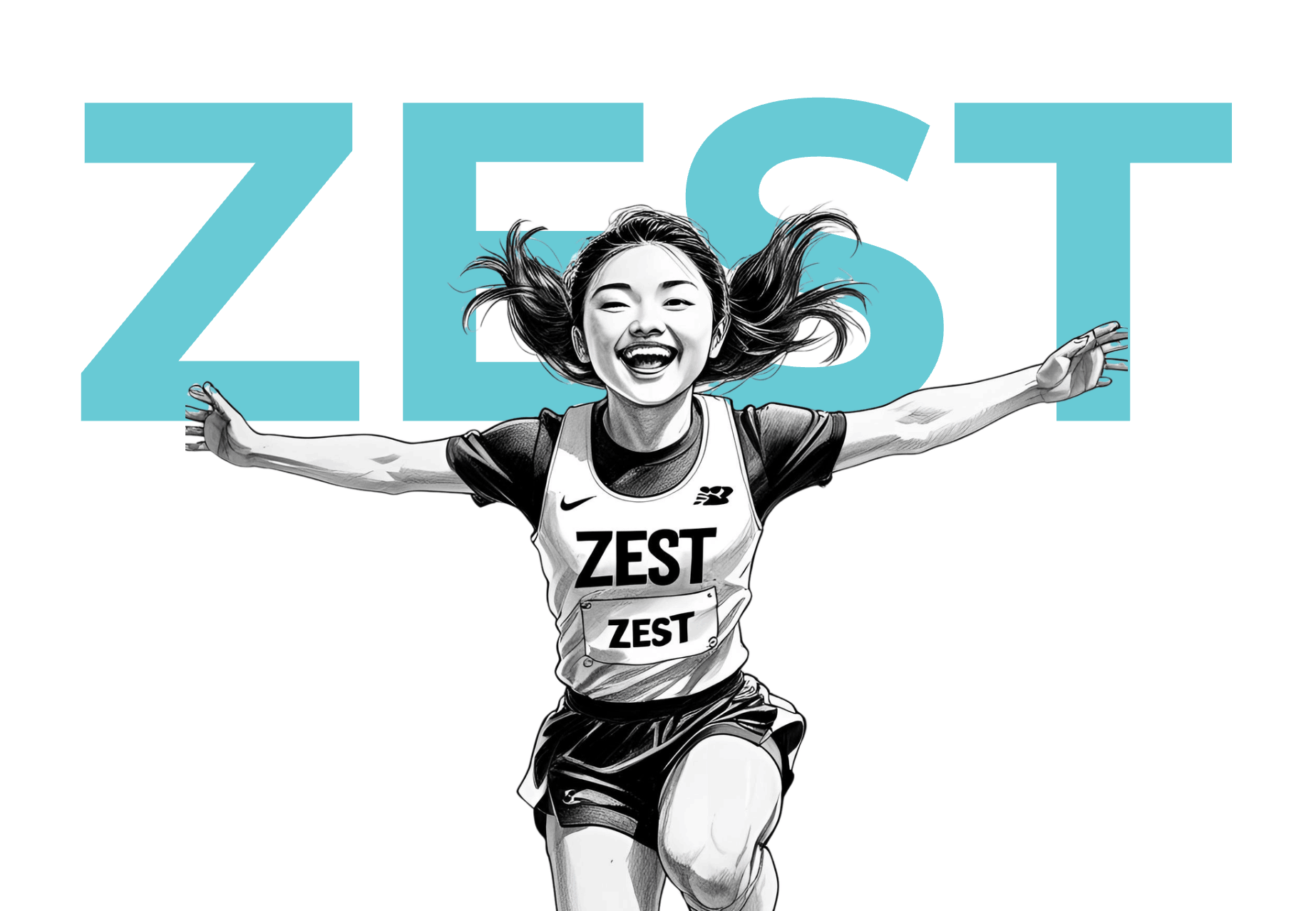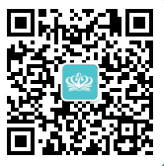
ELITE ATHLETE | PERFORMANCE COACH | P.E. TEACHER
At the British International School Shanghai Puxi, we teach traditional values such as obedience and respect, while encouraging our students to be independent thinkers who challenge conventional ideas. This creates a paradox: as a coach and father, how do I foster traditional values while instilling an innovative mindset that questions the status quo?
In this week’s A-Z, I explore obedience and intelligent disobedience, reflecting on my teenage years to understand how we can better support young people in balancing these concepts as they become the next generation of innovators.
Intelligent Disobedience is a concept that encourages individuals, particularly children and young people, to thoughtfully question and challenge authority or conventional wisdom when necessary. It's about knowing when to follow instructions and when to deviate from them based on critical thinking, personal values, and the context of a situation.
Key Aspects of Intelligent Disobedience:
Critical Thinking: It involves analyzing a situation and assessing whether the directive from an authority figure is in one's best interest or aligns with their values.
Judgment: Young people learn to make informed decisions by weighing the potential consequences of obedience versus disobedience.
Empowerment: Encouraging intelligent disobedience helps foster independence and confidence in young individuals, enabling them to advocate for themselves and think creatively.
Respectful Challenge: It emphasizes challenging ideas and instructions respectfully, promoting dialogue rather than outright defiance.
Learning from Experience: Intelligent disobedience often involves learning from mistakes and experiences, helping individuals develop better judgment over time.
In essence, intelligent disobedience is about finding a balance between respecting authority and having the courage to think independently and act according to one’s beliefs and understanding.
“Intelligent disobedience is a key part of being ambitious.” — Marlon Devonish MBE OLY
Asking a child to be obedient is too simplistic. It is not right to be constantly disobedient, nor is it wise to follow instructions without question. Young people must learn to make judgment calls, often through experience and mistakes.
I believe children should be encouraged to challenge ideas in the right way and for the right reasons. This concept, known as intelligent disobedience, has guided my coaching approach, prompting me to reflect on my own childhood for insights.
I was born in 1976 in Coventry, England, to parents who were both elite performers in their fields. My father was a respected welder, known for his precision, and my mother, a dedicated nurse, tirelessly improved the lives of her patients through the NHS.
In my youth, I was a zestful, carefree child who tended to follow my parents' guidance. They say your first teachers are your parents, and I was fortunate—not due to privilege, but because my parents, my school, and my sports experiences introduced me to diverse people from various backgrounds.
My parents provided support when I needed it but also allowed me space to explore, challenge, and pursue my ambitions. They instinctively knew when to set boundaries and when to let me make my own choices.
Reflecting on my early years, I appreciate how I navigated life, making both good and poor decisions. Now that I'm older, I offer young students three key pieces of advice.
Part 1 – Humility & Curiosity
I believe I can learn from anyone, and I'm always curious to uncover that knowledge. Regardless of background, I’m confident that if I dig deep, I’ll find useful or interesting insights.
My ambition and thirst for knowledge cultivated my inquisitive nature. Other people’s experiences provide wisdom and understanding—tickets to personal success. Thus, I learned to ask questions respectfully and listen actively.
Part 2 – Know Yourself
The choice between obedience and intelligent disobedience arises when you assess an authority figure's guidance against your own values, beliefs, and goals.
Ask yourself what matters to you in education, relationships, or any subject. Writing these down or discussing them with respected individuals can clarify your beliefs and goals, making it easier to choose between obedience and intelligent disobedience.
Once you've made your decision, have the confidence to take ownership of the outcomes. This can be challenging, especially when faced with conflicting views from authority figures.
The BISS Lions Football Team
I often share a story about the BISS Lions football team during the Under-13 Multi-Sport Games in Thailand. We struggled to find our rhythm; the coach provided one set of instructions, while parents shouted conflicting advice, albeit with good intentions. This led to confusion on the pitch.
After discussing with the coaching staff, I held a team talk—not with the players, but with the parents. We decided on a radical approach: silence. We encouraged the players to take the field without external input. The second half began with strong vocal communication among the BISS players, a through ball to our BISS Lions striker who, without hesitation smashed the ball with a beautiful strike into the top left corner of the net! Sometimes, the best thing a parent or/and coach can do is allow a child to make their own decisions and build self-confidence and strengthen their independence.
Part 3 – Understand & Articulate the Why
Another aspect of obedience or intelligent disobedience is the ability to communicate why you want to make a decision in alignment with your goals. While you can't guarantee agreement, mutual respect for differing opinions is essential. As young people articulate their decision-making processes, they quickly begin to earn the freedom and respect they seek.
Balancing obedience and intelligent disobedience is challenging yet essential for young people. It involves understanding oneself, learning to communicate effectively, and having the courage to make independent decisions.
Conclusion
Balancing obedience and intelligent disobedience is crucial for us as students in today’s world. At the British International School Shanghai Puxi, we learn the importance of traditional values like respect while also being encouraged to think independently and question the status quo.
Intelligent disobedience empowers us to think critically and challenge ideas in a respectful way. By focusing on humility, self-awareness, and effective communication, we’re better prepared to navigate complex situations with confidence.
Looking back on my experiences, I realise that each of us has the potential to innovate. By embracing curiosity and asking questions, we can contribute meaningfully to our community. Let’s continue to support each other on this journey, striving to be both respectful individuals and bold thinkers.








